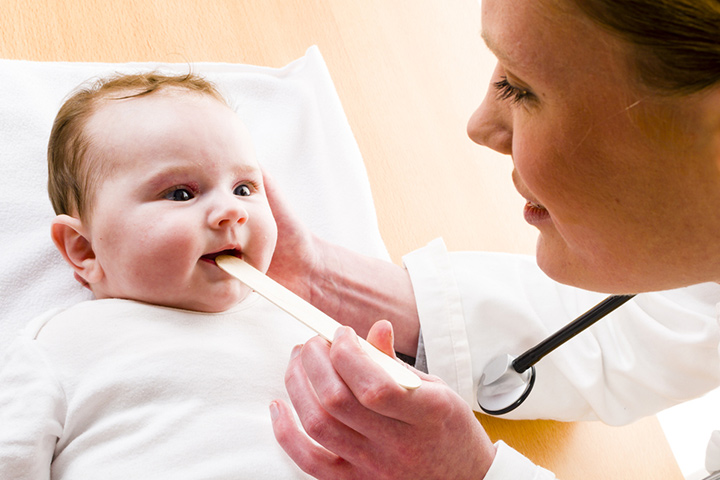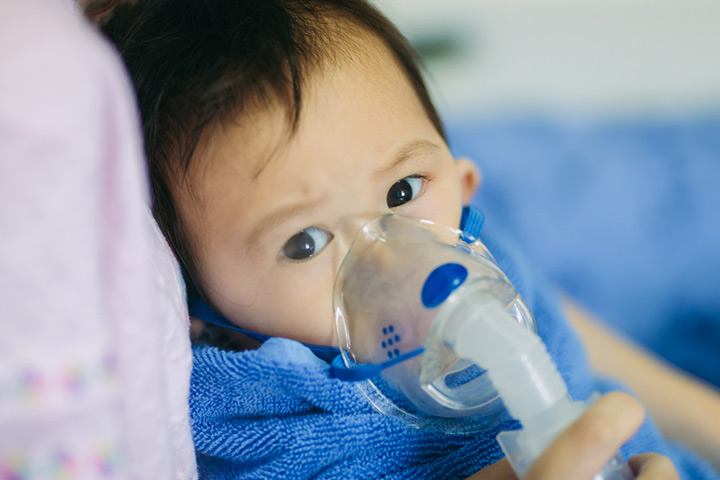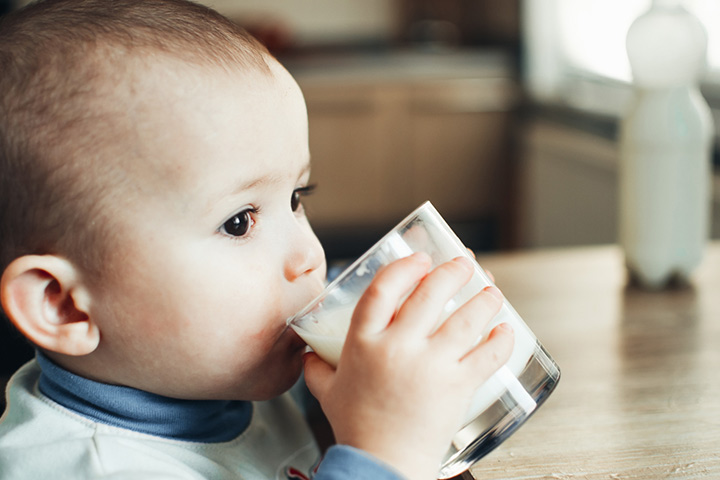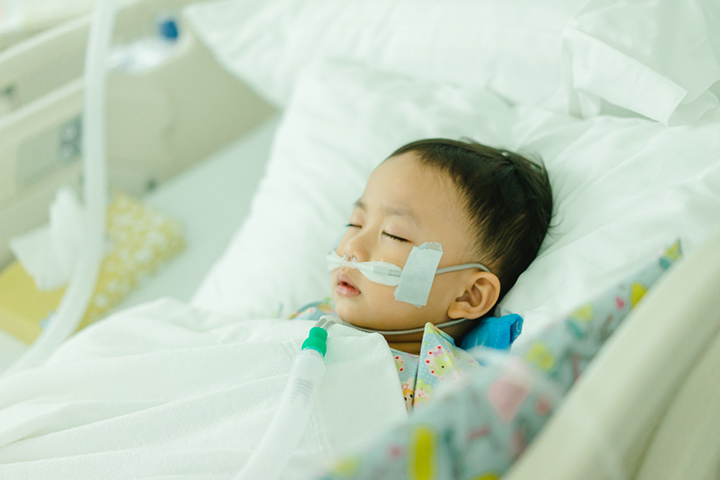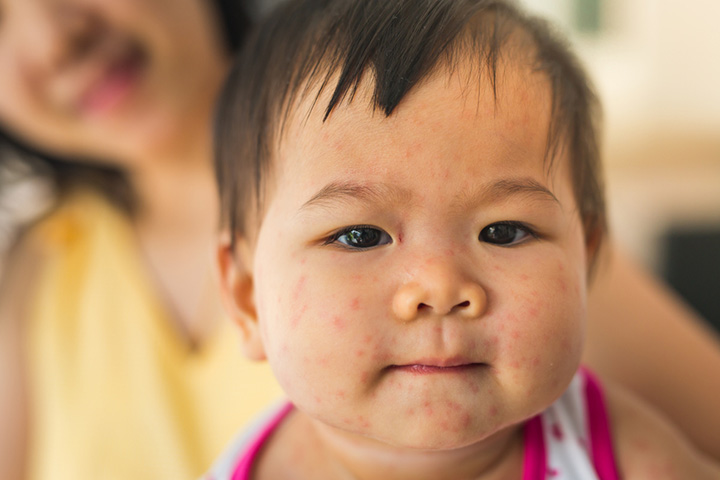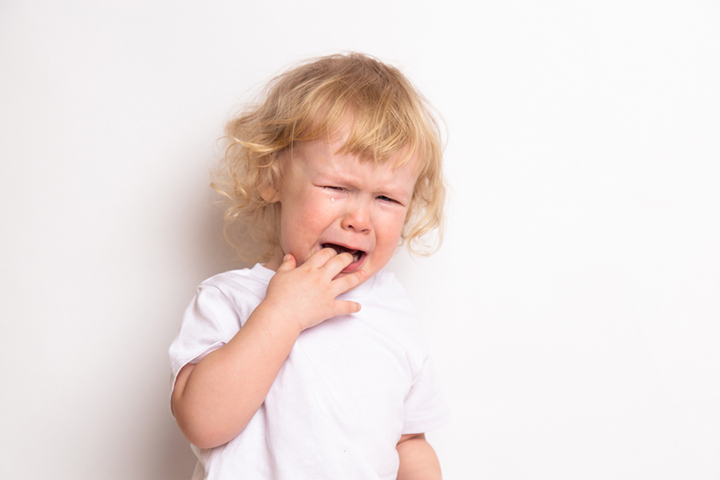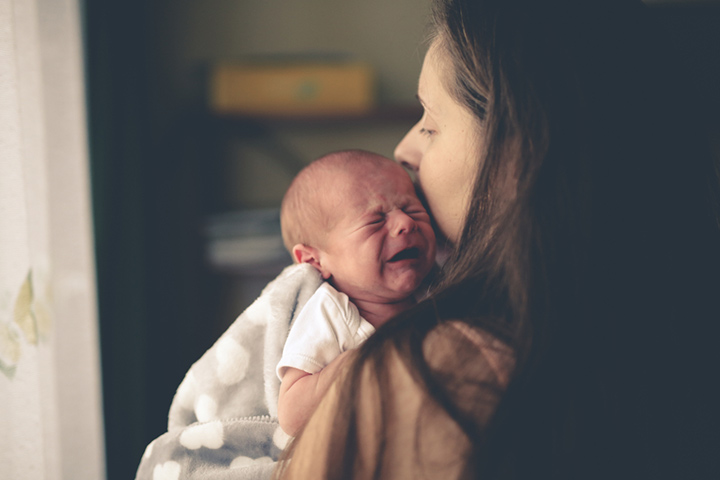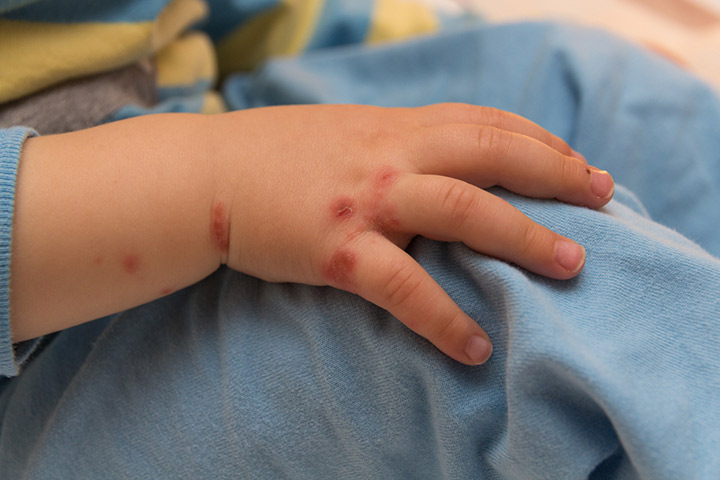
Image: Shutterstock
Kissing is one of the purest forms of showing love. When you first hold your tiny bundle of joy, you realize, they are the most precious things your hands will ever touch. You want to protect them from everything. The most natural reaction when you reach them is to kiss that little head of theirs. As heavenly as it feels, your newborn might not be the best person to land all the kisses on, and there are good reasons why you should restrict yourself and others from doing so. Read on to know them all.
1. Cold Sore
Image: Shutterstock
When kissed by an adult with a cold sore, your infant may be infected with oral herpes or fever blisters (1). Herpes virus type 1 (HSV 1) is responsible for the outbreak, which begins as a tiny blister on the lips or mouth (2). It may also affect the nose, cheekbones, and chin, among other places on the face. The fact that when the virus attacks, it remains there for the rest of one’s life is also a concern. Even though some children might not get a cold sore, others may suffer from several outbreaks of the same disease in the future.
2. Respiratory Illness
Image: Shutterstock
Having a baby with Respiratory Syncytial Virus (RSV) causes the lungs to get infected, making breathing harder for them (3). Moreover, the disease is very communicable, making it challenging to keep small children from contracting it. Your infant will become infected if a sick kid or adult approaches and kisses your baby. Infants’ airways are tiny and narrow, so inflammation from infection can be pretty harmful. This is even more true for preterm newborns, whose immune systems are already weaker than their counterparts.
3. Food Intolerances
Image: Shutterstock
Food allergies affect a large percentage of children and adults. For example, a child with celiac disease may be harmed if gluten is present in the lipstick, which many people are unaware of (4). Likewise, when kissing a baby’s lips, it’s advisable to avoid doing so since you don’t know what food the person has eaten, and fragments of it that may remain in their mouth.
4. Increased Risk Of Cancer
Image: Shutterstock
Products containing chemicals that make people appear younger are widely available. There may be parabens, formaldehyde, and other chemicals in these goods. In some studies, these are regarded as endocrine disruptors and have been linked to an increased risk of cancer (5). People who use these products should avoid kissing their children.
5. Kissing Disease
Image: Shutterstock
Formally known as mononucleosis, it is an illness that is transmitted by saliva, most commonly through kissing (6). Even though it is more frequent among adults, it may also plague newborns. Runny noses and crankiness are babies’ most common symptoms, although respiratory issues develop in rare cases. There is no cure for this virus-borne illness. The baby will suffer through the disease if its immune system isn’t actively fighting the infection.
6. Inadequate Oral Hygiene
Image: Shutterstock
Unsurprisingly, poor dental hygiene can lead to decayed or broken teeth. However, some people aren’t aware that smothering a newborn with kisses can potentially cause cavities in their teeth. Streptococcus mutans, a bacterium found in saliva, can cause holes in a child’s teeth if passed on to them (7). An inadvertent kiss or food exchange with the newborn might transmit the bacteria . To be safe, make sure you don’t spray saliva on food when cooling it for the baby.
7. The Immune System Is Weakened
Image: Shutterstock
A baby’s first few months of life are when its gut bacteria are most vulnerable to sickness (8). Therefore, anyone wishing to come in contact with your infant must ensure that they have cleaned their hands thoroughly and show no signs of disease before doing so (whether they are a child or an adult). Adults and children may approach and kiss the infant in circumstances when they are ignorant of their disease. A weak immune system makes it difficult for a newborn to fend against viruses in these situations. Babies begin receiving immunizations at birth and continue to get them until they reach a specific age. And each dosage is necessary for the vaccine to take action in the body. As a result, their bodies have deficient immunity for the first few months after birth and are highly vulnerable to infection.
8. Hand, Foot, And Mouth Disease
Image: Shutterstock
It is a common childhood illness, in which sores appear all over the child’s body. Hand, foot, and mouth are the grounds of the disease. In addition, close physical contact, such as kissing, can transmit the disease. In these situations, children are exhausted, have a sore throat, and become irritable (9). In fact, they are sick with a fever. Therefore, any ill adult or kid should be kept at a distance from your newborn.
Bacteria and viruses live in every region of the body, and while they are generally not harmful to healthy people, they can be detrimental to infants. Newborn newborns’ immune systems are weaker than those of adults, which is why we should keep the touch as sanitized as possible.

